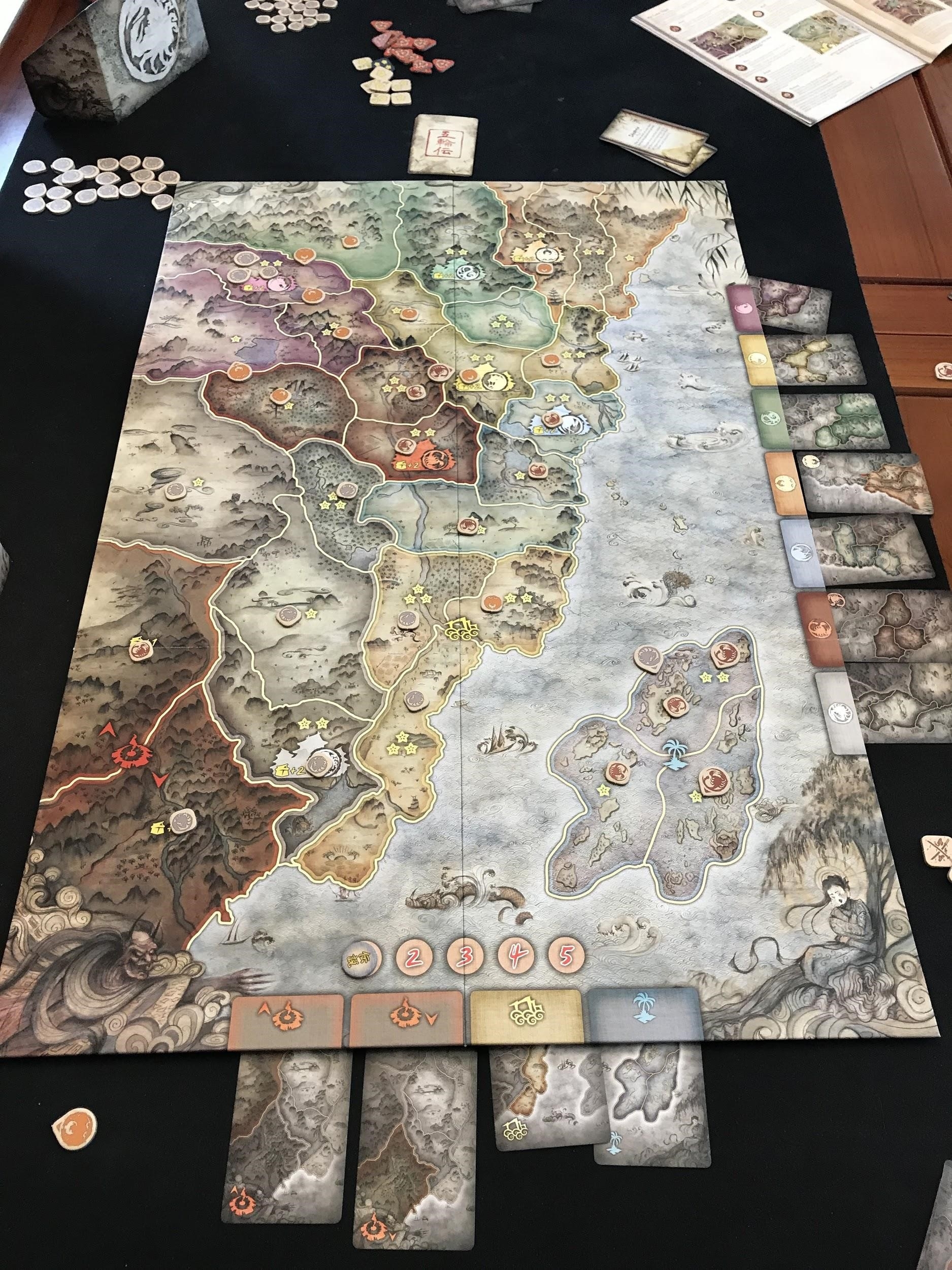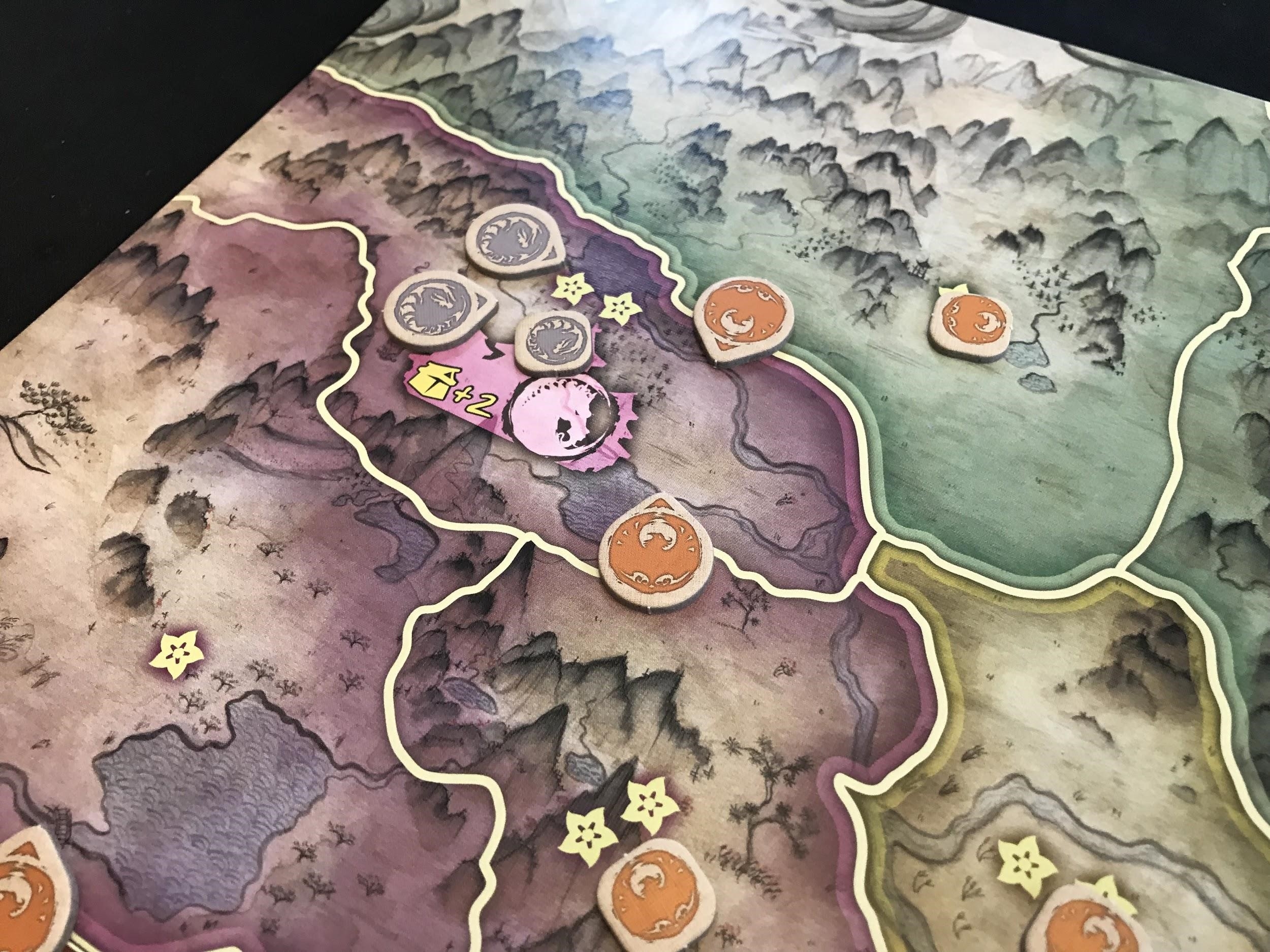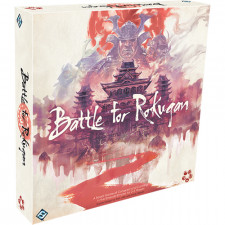Battle for Rokugan Review
on Jan 31, 2018
Critical Hits: Fast, streamlined, tension as thick as an Oni’s hide
Critical Misses: Asymmetry almost too light, potential for bad draws
Fantasy Flight may be best known for big expansive titles like Twilight Imperium or Star Wars: Rebellion. When they announced their acquisition of the world of Rokugan, I assumed the first board game we’d see in the world made famous by Legend of the 5 Rings would be an equally expansive game. Imagine my surprise then, when I finished the short rulebook that presents a streamlined game of territorial complex. No bushis or Shinto? The shugenja of Rokugan reduced to a card? No minis?! This didn’t feel like a Fantasy Flight Game to me. Naturally, I had no reason to worry. Fantasy Flight puts out consistently good games and Battle for Rokugan is no different.
The great clans of Rokugan are at war; a massive battle for land and honor has spread across Rokugan. Your goal is simple: claim land and earn honor. The most honorable clan at the end will advise the emperor as he founds the Emerald Empire. Playing the game is as simple as the goal. In fact, this feels like a game designed with “Things should be as simple as possible, but no simpler†as an ethos. Battle for Rokugan distills area control, bluffing, and negotiation into a tense 1 hour package that plays as well with 2 players as it does with 5.

It does this by eschewing many of the frills common in this genre. There are no troops to move around the board, resources to gather, or tech to develop. You’re assumed to have troops in any province you control thus every area with your small - and sometimes difficult to see - tokens is a threat to your neighbors. Boats and shinobi allow you to attack nearly anywhere on the board should you have their services available, and the presence of a bluff token means you can always stare down your opponents and lie.
Everything in this game boils down to handfuls of tokens played face down to the board. At the beginning of each of Battle for Rokugan’s 5 rounds, each player will draw 4 or 5 tokens from their pool and place them face up behind their screen. At this point, your heart will begin to race as you look on your military might, or your stomach will begin to flip as you realize it’s going to be a round of bluff and bluster. These tokens determine your actions. Military troops are the most common but you’re limited to attacking outward from provinces you control, Shinobi can be deployed anywhere and allow you to strike deep into enemy territory, and blessings allow you to boost another token’s strength.

However, each type of token has specific placement rules. A handful of Navy tokens aren’t going to help you if your opponents are knocking at the doors of an inland province. Military troops can’t help you if your secret goal is pointing your towards a province on the other side of the map. Everyone has almost identical pools of tokens, but your strategy will be determined by what you draw when. This is where bluffing comes in. Tokens are played face down and there’s no way for your opponent to know if you’re really launching a Shinobi strike on their capital or if you’re dropping a blank bluff token down to draw their attention away.
Every single snap of a token on the board brings with it as much misdirection as it does military threat. When tokens are flipped over and combat is resolved through simple additive comparisons, groans and fist pumps emerge in equal measure. Because there is nothing more to this game than playing tokens and playing your friends, salvaging a bad draw through table talk and bluffing feels amazing. Baiting your opponents into attacking a territory you destroy through a raid, or lockdown through a peace token is equally satisfying.
There are a few more systems to manage, like special territory powers if you can claim all the provinces in a territory or some light asymmetry that provides the Rokugan flavor, but for the most part, this game succeeds because of how simple it is. The world of Rokugan is deftly layered on; just enough to give context to the asymmetric powers and the dark territory bonuses of the Shadowlands but never so much as to bog the game down. It manages to capture the essence of what makes Diplomacy a classic without convoluted written orders or friendship ending arguments. Battle for Rokugan is a great introduction to FFG’s take on this world, and a darn good game to boot.

 Customer Support
Customer Support  Subscribe
Subscribe 




 Account
Account  Wishlist
Wishlist 

